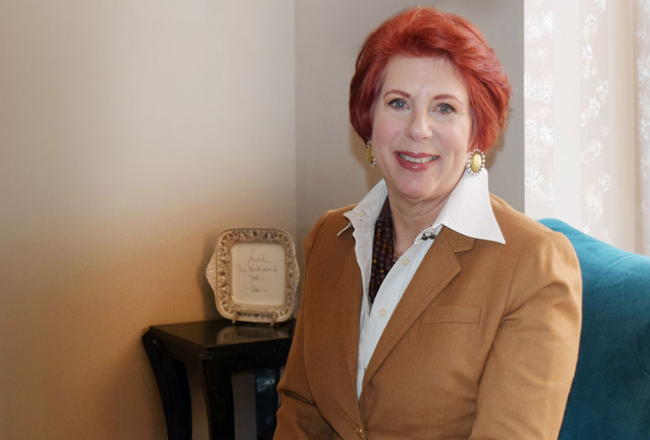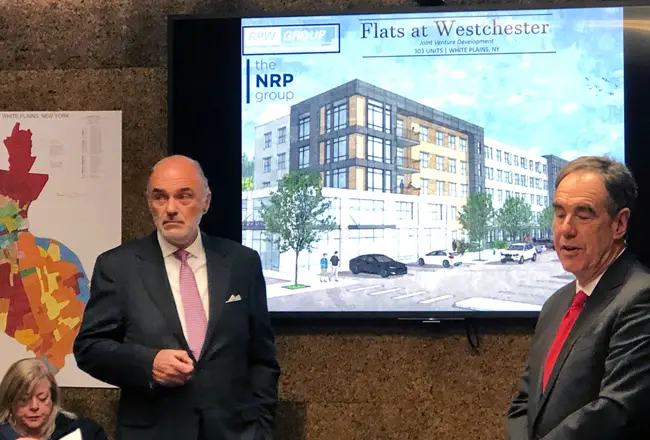
Phyllis Ayman’s new book “Overdue: Quality Care for Our Elder Citizens” was released Feb. 8 and by its first week in print it rose to the No. 1 spot on Amazon in the nursing home care books category. The elation that Ayman felt for this achievement was a marked difference from the anger and frustration she experienced when she first resolved to write the book.
“I have been a speech pathologist who has worked in over 40 skilled nursing facilities in the local area over 25 years,” she said. “In working in all of these buildings, I became increasingly disheartened about the quality of care. I left working in them twice because I felt I couldn”™t make the kind of changes that I wanted to make. It became emotionally taxing as well as psychologically taxing ”” it wasn”™t just about my speech programs, but what could I do to improve the quality of life and the quality of care.”
Ayman, who is the principal owner of the Cos Cob-based PMA Speech Solutions, wrote her first book “Nursing Homes to Rehabilitation Centers: What Every Person Needs to Know” in 2017 in an effort to provide an overview of an industry that few outsiders consider unless there is a family health crisis. She pointed out that in many cases this industry has made the bottom line its overwhelming operational priority.
“Over the years, there has been the corporatization of the industry, with a lot of large chains buying these facilities, and the quality of care, unfortunately, becomes less than adequate,” she added.
In “Overdue,” Ayman sought to provide a consumer-friendly guide on what to consider when choosing an elder care facility. She provides examples of severely inadequate care that she witnessed during her career, and constantly reinforces the notion that the patient”™s family should not be passive in addressing concerns.
“If you”™re an informed consumer, you are a more empowered consumer,” she explained. “Health care is a business, but people feel they are at the mercy of whomever is running the nursing home. But, really, you are not. You are buying health care services and they are in the business of selling those services, and they need you because if they don”™t have customers they don”™t have a business.”
Ayman pointed out how many of these facilities employ what is known in the trade as the “chandelier effect” by creating lobbies that look like the entrance to a luxury hotel. This presentation of dazzling interior design, she noted, was an attempt to “attract short-term Medicare dollars, because that is the highest reimbursement. That”™s why many of these facilities have short-term rehabilitation facilities. In order to appeal to those people with the highest Medicare dollars, they create these high-end-looking lobbies.”
Yet once a person goes past the lobby, Ayman continued, there is a considerable difference in the visual style between the short-term and long-term rehabilitation facilities. The short-term facilities, she stated, “look different than the rest of the facility ”” they have more amenities, the rooms are designed in a way that is more modern and contemporary and visually appealing.” Ayman advised anyone touring these facilities to see the long-term unit, even if the patient is only to be considered for short-term care.
“That will give you a very good idea of what the priorities are for that administration,” she said, adding to pay extra attention to what is happening in the long-term unit. “Be cognizant if you hear ringing bells or people don”™t look like they are well cared for or well attended. Also, there is a high percentage of people who go to a short-term unit and, for whatever reason, are transferred to the long-term unit even though it wasn”™t the family”™s intention.”
Ayman devoted a chapter in “Overdue” to Alzheimer”™s and dementia care facilities, which she forecast becoming more prevalent in the near future.
“Once every 66 seconds, a person is diagnosed with Alzheimer”™s in this country,” she said. “Be aware and ask questions of how a memory care unit is designed. Too many times we”™ve come to accept that people are sitting aimlessly and looking out a window ”” we”™ve become numb to it. But it doesn”™t have to be that. I also talk about other forms of care and how memory care units should provide a continuum of activities. And as a person advances in their condition, the facility needs to provide activities that are suitable for different levels of cognition and still function in a way to their maximum abilities.”
Ayman acknowledged that most people never give thought to the concept of eldercare until a health crisis occurs, and she recommended advance planning to determine the quality of local care.
“I contacted several elder care attorneys before the book came out,” she said. “As people are planning financially, they should get an idea of what this landscape is about. Most people don”™t know. They don”™t want to think about it or they don”™t think it”™s going to happen.”






















